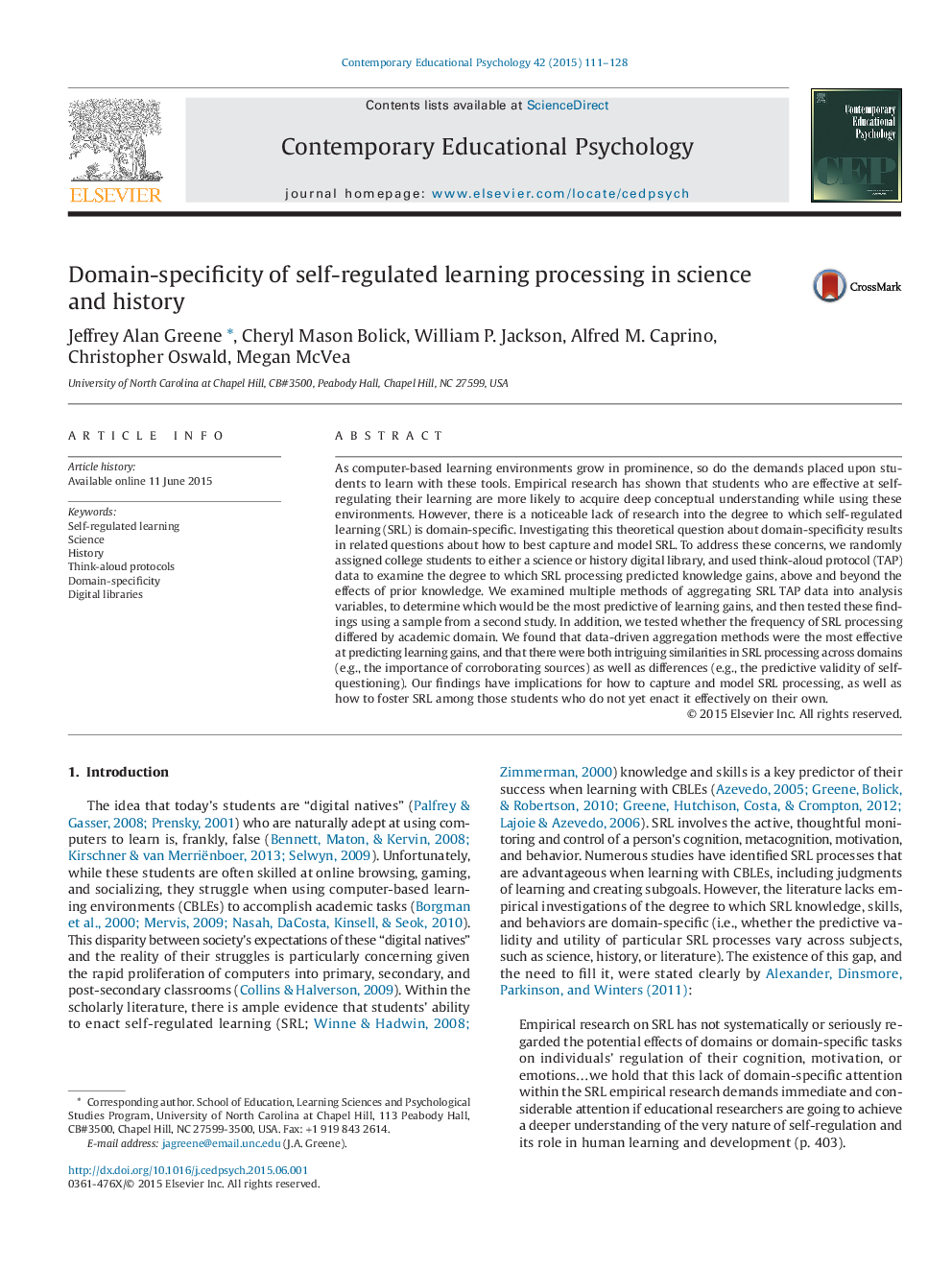| کد مقاله | کد نشریه | سال انتشار | مقاله انگلیسی | نسخه تمام متن |
|---|---|---|---|---|
| 352553 | 618598 | 2015 | 18 صفحه PDF | دانلود رایگان |
• We investigated the domain-specificity of self-regulated learning with computers.
• Investigation of think-aloud protocol data supported data-driven analysis.
• We found high-level strategies that were commonly predictive across domains.
• Predictive validity of planning and monitoring processes differed across domains.
• We provide support for our method of studying domain-specificity and learning.
As computer-based learning environments grow in prominence, so do the demands placed upon students to learn with these tools. Empirical research has shown that students who are effective at self-regulating their learning are more likely to acquire deep conceptual understanding while using these environments. However, there is a noticeable lack of research into the degree to which self-regulated learning (SRL) is domain-specific. Investigating this theoretical question about domain-specificity results in related questions about how to best capture and model SRL. To address these concerns, we randomly assigned college students to either a science or history digital library, and used think-aloud protocol (TAP) data to examine the degree to which SRL processing predicted knowledge gains, above and beyond the effects of prior knowledge. We examined multiple methods of aggregating SRL TAP data into analysis variables, to determine which would be the most predictive of learning gains, and then tested these findings using a sample from a second study. In addition, we tested whether the frequency of SRL processing differed by academic domain. We found that data-driven aggregation methods were the most effective at predicting learning gains, and that there were both intriguing similarities in SRL processing across domains (e.g., the importance of corroborating sources) as well as differences (e.g., the predictive validity of self-questioning). Our findings have implications for how to capture and model SRL processing, as well as how to foster SRL among those students who do not yet enact it effectively on their own.
Journal: Contemporary Educational Psychology - Volume 42, July 2015, Pages 111–128
